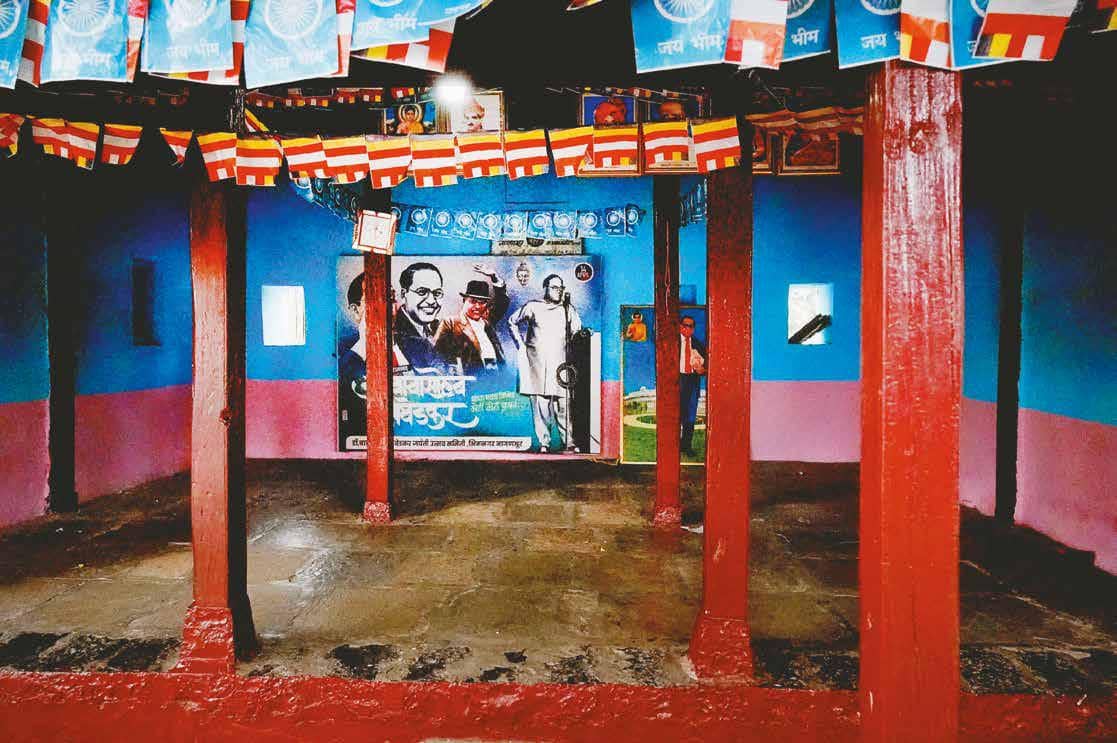
SANTOSH Nagoji takes a deep breath and walks toward the hole-in-the-wall men's salon on a Thursday evening. He needs a haircut but dares not enter the 10 x 10 sq feet parlour, painted with pink walls, and take up the empty seat next to two customers. He knows what the barber's response will be. Standing at a distance from the salon's threshold, he still curtly asks, “Kesa kapnar ka (will you give me a haircut)?"
The hairdresser is about to nod when a customer getting a facial stops him. Taking one look at Nagoji he coldly says, "Dalit aahe toh (he is a Dalit)."
In most places, barber shops serve as a space for grooming, hygiene, occasional gossip, and social interaction. For Nagoji a well-built 33-year-old from the Mahar caste, who works on contract as a delivery driver in Mumbai, it is an everyday place of exploitation, discrimination, and humiliation. A place to avoid, a no-go zone.
"No haircut for Dalits," a strictly enforced caste-based prohibition, is a custom, zealously practised in the village of Nagansur, Tondlur, Navindagi and others in Solapur's Akkalkot taluka on the Maharashtra-Karnataka border. The dominant caste of Lingayats-a politically strong community-maintains an upper hand over the scheduled castes of Mahars, Matangs, Dhor and Chambhar living in these villages. In Nagansur of the 8500-odd population, Lingayats constitute the majority and only 1500 are scheduled castes and tribes. They treat members of Other Backward Castes (OBCs) and Muslims as relatively equal citizens. Dalits, however, are ostracised; haircuts in barber shops being one of the examples.
This practice is one of the 400-odd documented forms of untouchability followed in different parts of the country, as per Ghanshyam Shah edited 2006 book, Untouchability in Rural India.
This story is from the August 21, 2024 edition of Outlook.
Start your 7-day Magzter GOLD free trial to access thousands of curated premium stories, and 9,000+ magazines and newspapers.
Already a subscriber ? Sign In
This story is from the August 21, 2024 edition of Outlook.
Start your 7-day Magzter GOLD free trial to access thousands of curated premium stories, and 9,000+ magazines and newspapers.
Already a subscriber? Sign In

No Singular Self
Sudarshan Shetty's work questions the singularity of identity

Mass Killing
Genocide or not, stop the massacre of Palestinians

Passing on the Gavel
The higher judiciary must locate its own charter in the Constitution. There should not be any ambiguity

India Reads Korea
Books, comics and webtoons by Korean writers and creators-Indian enthusiasts welcome them all

The K-kraze
A chronology of how the Korean cultural wave(s) managed to sweep global audiences

Tapping Everyday Intimacies
Korean filmmaker Hong Sang-soo departs from his outsized national cinema with low-budget, chatty dramedies

Tooth and Nail
The influence of Korean cinema on Bollywood aesthetics isn't matched by engagement with its deeper themes as scene after scene of seemingly vacuous violence testify, shorn of their original context

Beyond Enemy Lines
The recent crop of films on North-South Korea relations reflects a deep-seated yearning for the reunification of Korea

Ramyeon Mogole?
How the Korean aesthetic took over the Indian market and mindspace

Old Ties, Modern Dreams
K-culture in Tamil Nadu is a very serious pursuit for many